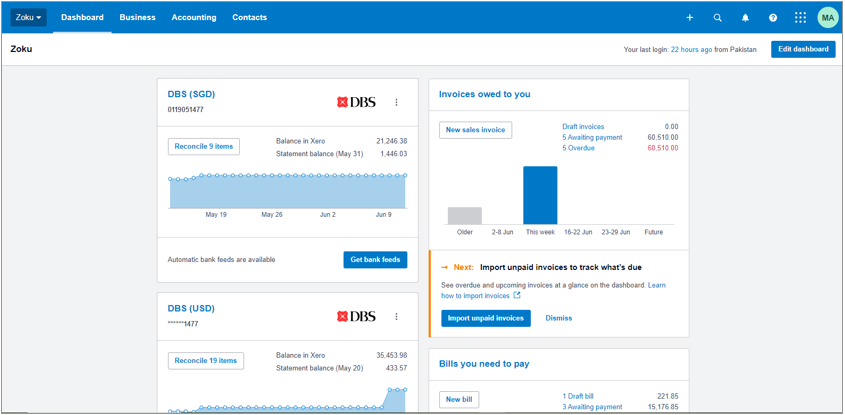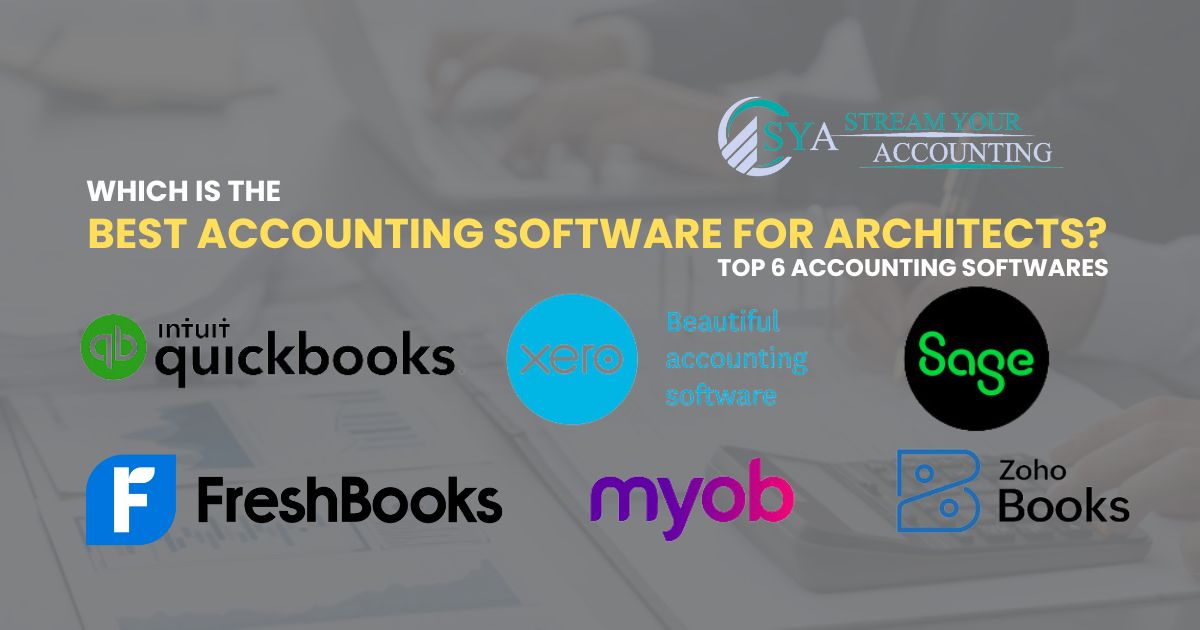Introduction
As an architect, balancing your creative projects with complex financial tasks is crucial to your firm’s success. It’s not just about designing stunning buildings; managing your finances effectively is equally important. Questions like, “Which accounting software for architects is best for my firm?” or “Is there a solution that can track finances by project and meet my specific needs?” might be on your mind.
Effective financial management in architecture involves more than just handling bills and payroll. It requires tracking finances for each project to ensure everything is running efficiently. That’s where specialized accounting software is needed. This guide will help you understand what features to look for in accounting software and how it can address the specific needs of your architectural firm. We will cover choosing the best tool to manage your projects and finances effectively so you can focus on what you do best: creating exceptional designs.
Key Factors for Choosing Accounting Software for Architects
Success in your architectural firm involves more than just impressive designs; it also requires effective financial management. To ensure that every part of your business operates efficiently, it’s crucial to track finances by project. Here’s what to consider when selecting accounting software for architects:
1. Ability to Track by Project: Design projects can be long-term and complex. Project accounting software helps manage these projects by treating each as a separate entity, tracking its specific income and expenses. This method helps you keep your finances organized and under control.
2. Frequency of Reporting: Having access to financial reports whenever needed allows you to make quick decisions about your projects’ progress and financial status.
3. Tracking of Tax Information: Properly tracking tax information for each project helps avoid unexpected tax liabilities and assists in making better financial decisions.
4. Track Important Project Dates: Monitoring project milestones and deadlines helps ensure that financial decisions are made timely, keeping your projects and payments on track.
5. Manage Cash Flow: Effective invoicing and cash flow management are crucial for meeting financial obligations. Good accounting software ensures timely payments and smooth cash flow.
6. Established Terms: The software should help set payment terms and track outstanding invoices, making collections more efficient and managing cash flow easier.
7. Keeping Great Records: The ultimate goal of accounting software is to maintain clear and accurate records. It should give you a complete financial picture of your business and each project whenever you need it.
Considering these considerations, it’s clear why architects require specialized accounting software to meet their unique needs. Let’s explore why choosing the right software is crucial for effectively managing your firm’s finances.
Why Architects Need Specialized Accounting Software
Architects have special financial requirements that regular accounting software may not fulfill. From tracking project costs to invoicing clients and managing payroll, specialized accounting software can simplify these processes. The right software should be easy to use and integrate well with other tools, providing strong reporting features.
Another important question to consider is: How can you determine which accounting software is the most suitable for your needs? For that purpose, you need suggestions from someone with experience in this field. With 14 years of experience and hundreds of success stories, Stream Your Accounting (SYA) is well-equipped to guide you. Don’t waste your time. Talk to us or read our guide, “How to Choose the Right Accounting Software for Your Business.“
After reading the article, you know your business requirements and then proceed here and select from the top six accounting software options that can help you manage your finances effectively.
Top 6 Accounting Software for Architects
1. Quickbooks
QuickBooks is a top choice for many architectural firms due to its user-friendly interface and comprehensive features. It helps with invoicing, payroll, and expense tracking and integrates effortlessly with other tools. Yet, it might be costly for smaller companies, and certain advanced functions may take some time to learn.
| Pros | Cons |
| Easy to use with a user-friendly interface | Can be expensive for small firms |
| Comprehensive features including invoicing, payroll, and expense tracking | Some advanced features may take time to learn |
| Strong integration capabilities with other tools | |
| Excellent customer support and resources | |
| Regular updates and improvements |
ALSO READ THIS: What Does Balancing Account Mean?
2. Xero
Xero is a great choice for architects who want to handle projects and track time online. It can be used on any device and connects with more than 800 other apps. While it offers affordable pricing plans, its customer support options are limited, and the initial setup can be complex for some users.
Check out the Xero bills of one of our satisfied clients, showcased below.

| Pros | Cons |
| Cloud-based and accessible from any device | Limited customer support options |
| Strong project tracking and time management features | Some users find the initial setup complex |
| Integration with over 800 third-party apps | |
| Affordable pricing plans | |
| Regular updates and improvements |
3. Myob (Mind Your Own Business)
MYOB offers reliable accounting solutions tailored to the needs of architectural firms. It provides essential features for invoicing, expense tracking, and payroll management. However, its layout might not be as straightforward as some other choices, and its pricing models may not be as budget-friendly.
| Pros | Cons |
| Reliable accounting solutions | The interface may not be as intuitive |
| Essential features for invoicing, expense tracking, and payroll management | Pricing plans may be less competitive |
| Scalable solutions for growing firms | |
| Dedicated customer support | |
| Regular updates and improvements |
ALSO READ THIS: What is Construction Bookkeeping & Tips For Effective Bookkeeping
4. Freshbooks
FreshBooks is known for its user-friendly design, making it a great choice for smaller architectural firms or freelance architects. It’s really good at making invoices and keeping track of expenses, plus it has a mobile app so you can use it when you are out and about. However, it is more suited for smaller businesses and has fewer integration options compared to other software.
| Pros | Cons |
| User-friendly and intuitive design | Limited to smaller businesses or freelance architects |
| Excellent invoicing and expense tracking features | Fewer integrations compared to other options |
| Mobile app for on-the-go access | |
| Great customer support | |
| Automated billing and invoicing |

5. Zoho Books
Zoho Books offers affordable pricing plans and comprehensive features, including project tracking and expense management. Its easy-to-use interface and compatibility with other Zoho products make it a favored option. However, it lacks extensive integration with third-party tools, and customer support response times may be sluggish.
| Pros | Cons |
| Affordable pricing plans | Limited third-party integrations |
| Comprehensive accounting features including project tracking and expense management | Customer support can be slow at times |
| Integrates well with other Zoho products | |
| User-friendly interface | |
| Strong automation features |
ALSO READ THIS: What is The Importance of Bookkeeping For Startups
6. Sage Business Cloud Accounting
Sage Business Cloud Accounting provides scalable solutions for growing architectural firms. It features strong reporting and analytics capabilities and integrates with Microsoft Office and other tools. While it offers reliable customer support, it is more expensive than other options, and some features can be complex to use.
| Pros | Cons |
| Scalable solutions for growing businesses | More expensive compared to other options |
| Strong reporting and analytics capabilities | Some features can be complex to use |
| Integration with Microsoft Office and other tools | |
| Reliable customer support | |
| Customizable dashboards and reports |

Benefits of Using Specialized Accounting Software for Architects
Here are the benefits of using specialized accounting software for architects,
1. Efficient Project Management: The software helps architects manage projects better by keeping track of costs, budgets, and resources, ensuring everything stays organized and on budget.
2. Simplified Invoicing and Billing: Architects can effortlessly create invoices with customized templates and automatic billing features offered by architectural billing software not only save time but also reduce errors in the billing process, ensuring accurate and timely payments from clients.
3. Insightful Financial Reports: The software generates detailed reports that show how profitable projects are, how money is flowing, and overall financial health, helping architects make smart decisions about their business.
4. Seamless Integration: It works well with other tools architects use, like project management software, so data moves smoothly between them, saving time and preventing errors.
5. Detailed Expense Tracking: Architects can keep a close eye on project expenses, including materials, subcontractor costs, and overhead expenses, which helps them control costs and stick to budgets.
6. Effective Time Management: Architects can easily track the time they spend on projects, helping them stay on schedule and use their time efficiently to get things done.
7. Improved Client Communication: The software makes it easy to share project updates, documents, and invoices with clients, keeping them informed and happy.
8. Ensured Compliance: Architects can rest assured knowing the software helps them follow industry regulations and accounting standards, keeping them out of trouble.
9. Scalability: As architects grow their business, the software grows with them, offering solutions that can handle more projects and more complex business needs.
10. Professional Image: By using specialized accounting software, architects show they’re serious professionals, which helps them build trust with clients and partners and stand out in the industry.
ALSO READ THIS: Everything You Need to Know About Bookkeeping For Architecture Firms
Final Thoughts
Choosing the right accounting software for architects is essential to simplify financial operations and enhance productivity. QuickBooks, Xero, FreshBooks, Sage Business Cloud Accounting, and Zoho Books each offer unique benefits tailored to the needs of architects. By considering their pros and cons, you can select the best software for your firm. If you need further assistance, feel free to contact Stream Your Accounting for expert advice.
FAQs (Frequently Asked Questions)
Is QuickBooks good for architects?
Why choose QuickBooks instead of Xero?
Which software is commonly used for accounting?
Do I need accounting for architecture?
RECOMMENDED: Bookkeeper Sydney Services at SYA


